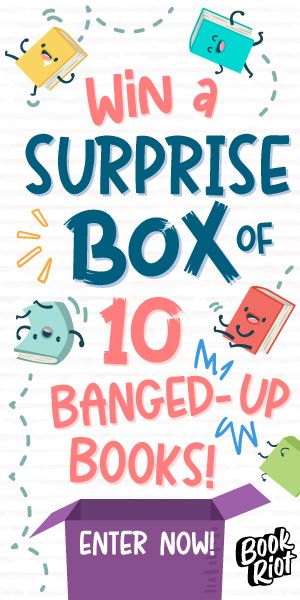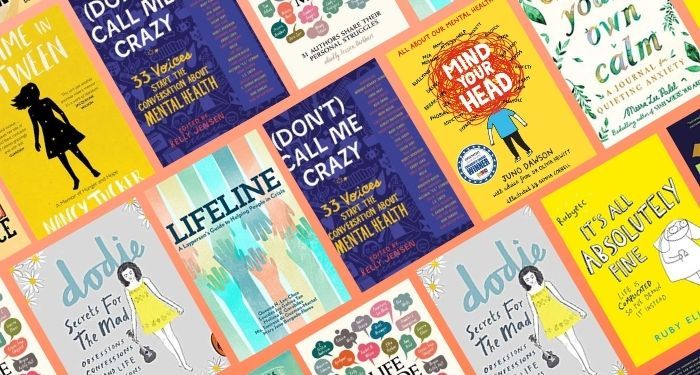
8 of The Best Mental Health Nonfiction For Teen Readers
It’s Teen Mental Wellness Day today! As someone who still was a teenager only two years ago, my memories of that period are quite fresh. I’m 21 now, and officially considered an adult even though I don’t feel like one most days. There’s so much I’d like to go back in time and tell my teenage self. But since it can’t work that way, I hope any teenager reading this article benefits from some of the insights.
Mental health has become an active part of conversations now. People are a lot more aware that mental struggles not only valid but also occur more frequently than we realize. However, the conversation is still being had in hushed tones and careful whispers. There is still stigma and shame surrounding the anguish in our minds. This can make it hard to normalise mental illness and feel comfortable reaching out for help.
Whatever you’re going through, it helps to try to meet yourself with kindness and compassion. Although it can be really hard to cultivate that habit, I think a keen awareness of the underlying issues can aid the process. A good way to do this can be engaging with the work of people who have gone through similar mental struggles as you have. Reading about how they are more than their mental illness and how they let themselves see that can lend us courage. It can also help people around us get a better grasp on what we’re going through.
Whether you’re a teenager who has been struggling with feeling mentally healthy, or one who wants to understand better some of the problems your peers face, I hope you find something worthwhile in this list of books. I would recommend considering therapy as a tool when things start to feel too out of your control. Seeking professional help can often be a step towards getting better.
You can also pick up these books to increase your awareness and understanding of these concerns. They would’ve made so much difference if I came across them during my teenage years. However, they’ve contributed to my mindfulness even now. Reading them has increased my capacity for compassion towards some angst-filled teenagers and a lot of still-angsty adults. So many of us are trying to work through our troubles, and a little acknowledgement can go a long way.

Life Inside My Mind: 31 Authors Share Their Personal Struggles Edited by Jessica Burkhart
Life Inside My Mind is an anthology of essays written by some of our favourite YA authors. Since these authors are already familiar with how to cater to a teenage audience, they even narrate their own experiences in a way that feels very accessible to a teen reader. They open up about their mental struggles and also delve into what helped them cope. The wide range of personal essays shows us that there is no one right way to navigate and cope with your mental illness.
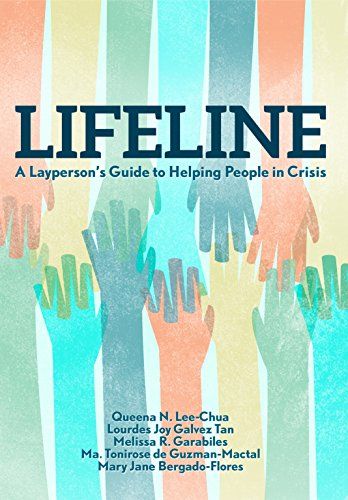
Lifeline: A Layperson’s Guide to Helping People in Crisis by Queena Lee-Chua, Lourdes Joy Galvez Tan, Melissa R. Garabiles, Ma. Tonirose de Guzman-Mactal & Mary Jane Bergado-Flores
This is a resourceful guide on how to deal with a teenager who is struggling mentally. You could be a concerned peer, a friend, a caregiver or a teacher. This book specifically focuses on teenagers with tendencies of self-harm or suicide, ones dealing with grief and survivors of natural disasters.
We have all been in a place where we really wanted to help someone in their time of need, but did not know how. This book tries to help us navigate these difficult conversations. It gives us a lot of practical pointers on how to approach and attempt to help someone who is struggling mentally. It is, however, reiterated often that these conversations are not a substitute for professional help. They simply act as first aid to put the person at ease. The book also tells you ways in which you can refer vulnerable teens to trained professionals.
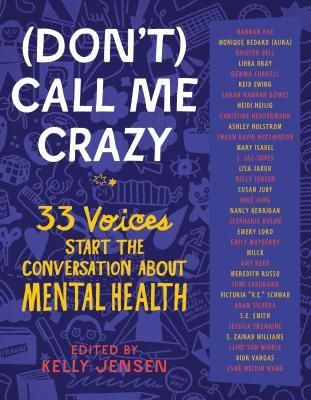
(Don’t) Call Me Crazy: 33 Voices Start the Conversation about Mental Health by Book Riot Editor Kelly Jensen
I don’t even know where to start with talking about how much I love this book. I thought I’m pretty mindful and aware when it comes to mental illnesses until I read it. It explored so many aspects of being mentally ill that I had never given a thought to before. It made me wonder and made me want to do better. (Don’t) Call Me Crazy is a collection of personal essays about mental struggles catered to a young audience.
It’s edited by a fellow Book Rioter, and some of its contributors are Book Rioters too. Each essay offers something raw, unique and helpful. There are also wonderful lists of resources following some of the essays. I’d wholeheartedly recommend this book to anyone looking to increase their understanding of mental illnesses.
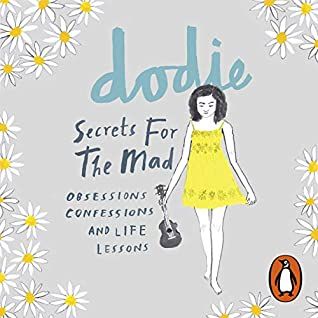
Secrets for the Mad: Obsessions, Confessions, and Life Lessons By Dodie Clark
If you’re familiar with Dodie’s music or YouTube videos, you know that her work has a bittersweet tenderness to it. She captures the same feeling in her book with her essays, lists, poems, and illustrations. Secrets for the Mad is a raw and honest account of her struggles with mental health. It explores self-harm, depression and anxiety, emotionally abusive relationships, and bisexuality.
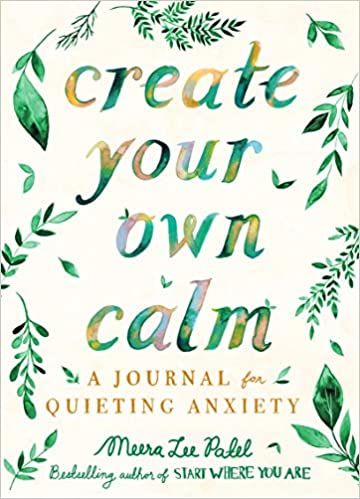
Create Your Own Calm: A Journal for Quieting Anxiety by Meera Lee Patel
Writing has often felt like a meditative act to me. I spent the majority of my teenage years finding peace within the alphabet. I wrote extensively when things got overwhelming and would always end the process with a better hold of the situation.
Meera Lee Patel creates the most gorgeous guided visual journals. Even flipping through them and pausing at some of the watercolour illustrations feels calming. Add to that the ability to self-soothe by examining your thoughts, and you’ve got yourself a safe space! I hope penning down your worries helps your teenage self the way it helped me.
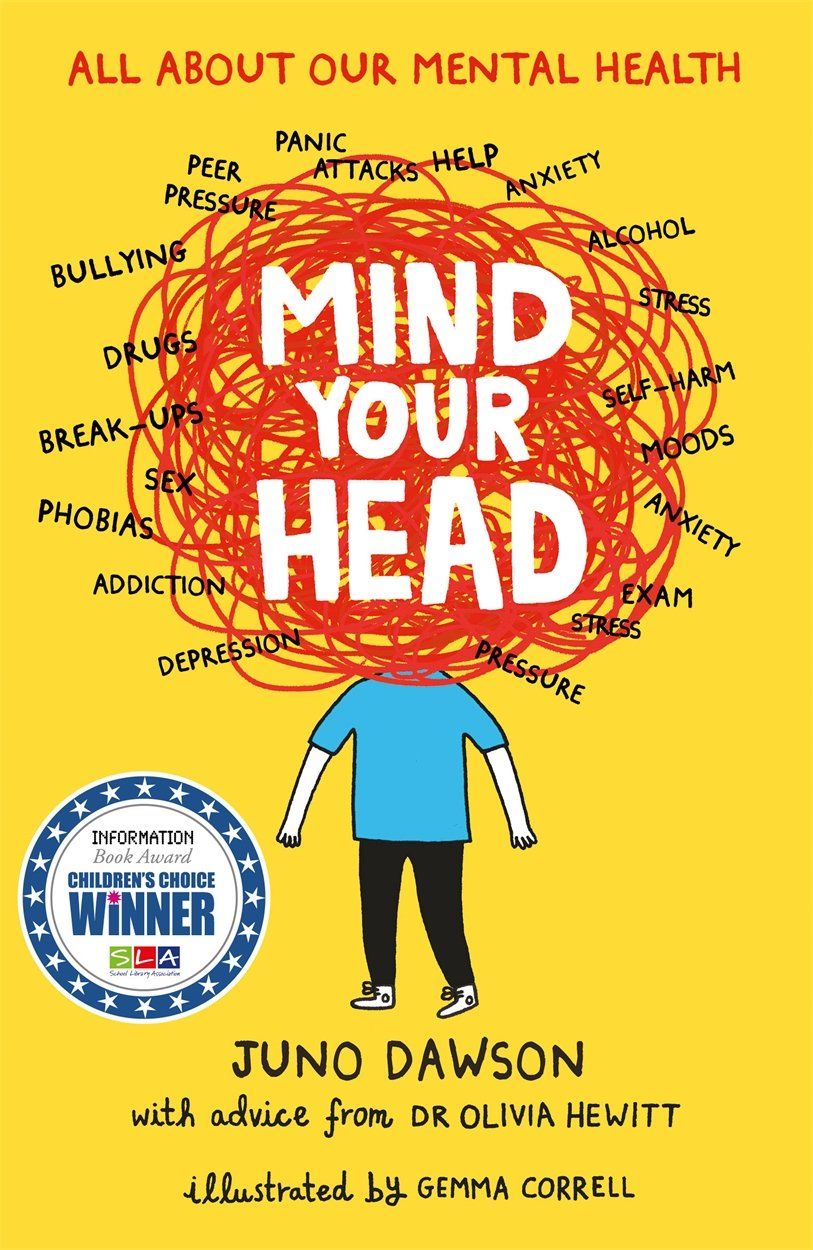
Mind Your Head By Juno Dawson & Gemma Correll
This is a really good book for young teens to pick up to understand more about mental health. It breaks down difficult concepts with tenderness and wit. It’s filled with illustrations by Gemma Correll to make us chuckle and make the text less daunting to read. It also has a lot of helpful medical facts and advice about mental illness explored by Dr. Olivia Hewitt.
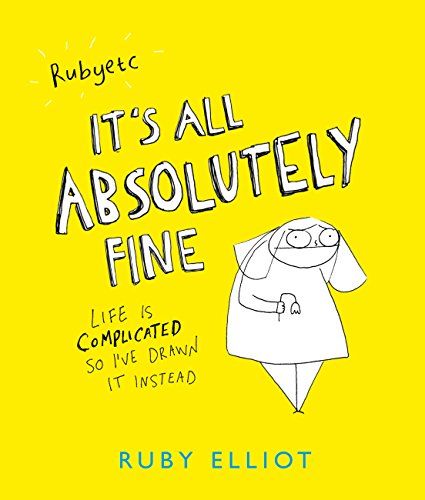
It’s All Absolutely Fine: Life is Complicated, So I’ve Drawn It Instead By Ruby Elliot
Filled with dark, witty and honest comics about mental struggles, this book is one to have on your radar. It is sad, empowering and entertaining all at once. It’s filled with pencil drawings that open up about the mental issues the author has encountered. Some of these include depression, bipolar disorder and eating disorders. This book can make you both tear up and laugh out loud.
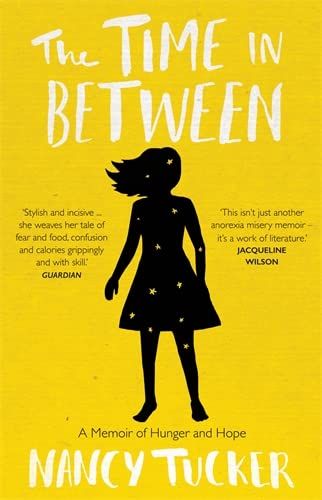
The Time In Between: A Memoir of Hunger and Hope by Nancy Tucker
Nancy Tucker developed anorexia nervosa at a very young age and eventually had to be hospitalized. She also experienced the other extreme end of bulimia nervosa. She went in and out of school and therapy during her journey of getting better and worse. She writes in detail about about the bleak reality of her eating disorder hoping to show just how ugly and difficult it can be.
I came across a lot of reviews mentioning how triggering it was to read this book. I would like the reader to keep that in mind if they have a history with eating disorders and decide to pick it up.
All of the books recommended above have trigger warnings that you should look out for before reading them.
For more mental health nonfiction for teens, check out these wonderful resources: 50 Must-Read YA Books About Mental Illness, Powerful and Authentic Books About Depression To Better Understand The Illness and 100 Must-Read Books About Mental Illness.


